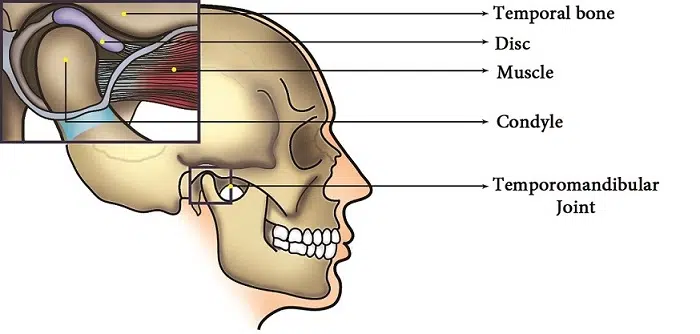What Is TM Joint Surgery | Temporomandibular Joint | Jaw Joint Surgery
Tempromandibular joint disorder (TMJ disorder) is a condition that makes your jaw painful, stiff, or unable to move fully. TMJ surgery is a process used to treat this disorder. The temporomandibular joint (TMJ) is a hinge-like joint where your jawbone and brain meet. It lets your jaw move up and down so you can talk, chew, and do other things with your mouth.

TMJ surgery is a highly specialized procedure within the field of oral and maxillofacial surgery. It requires a high level of expertise, and only the most skilled oral and maxillofacial surgeons are qualified to perform it. Mastery of this type of surgery takes years of dedicated practice. The most common surgeries involving the TMJ are those related to fractures and reconstruction of the TMJ. These surgeries are intricate and are typically performed by seasoned surgeons due to the dynamic nature of the joint, which adds an additional layer of complexity to the procedure.


TM Joint Surgery in India
India: A Destination for TM Joint Surgery
India has become a popular destination for medical tourism, including TMJ surgery. The cost of TMJ surgery in India is a fraction of what it costs in the West, and many patients from Western countries combine a holiday with their surgery. This is because India has an excellent reputation for offering quality surgical care.
Why Choose India for TM Joint Surgery?
There are several reasons why patients choose India for TMJ surgery:
- Affordability: The cost of TMJ surgery in India is a fraction of what it costs in the West.
- Quality care: India has a number of world-class hospitals and surgeons that offer high-quality TMJ surgery.
- Experience: India has a high volume of TMJ surgeries performed annually, due to the high rate of road traffic accidents in the country. This gives Indian surgeons a lot of experience in performing this type of surgery.
- Tourism: India is a beautiful country with a rich culture and history. Many patients choose to combine their TMJ surgery with a holiday in India.
Balaji Dental and Craniofacial Hospital
Balaji Dental and Craniofacial Hospital is a specialty center for TMJ disorders. It is one of the leading hospitals in India for TMJ surgery. The hospital has a high volume of TMJ surgeries performed annually, and its results are comparable to the best in the world.

If you are considering TMJ surgery, India is a great option to consider. The country offers affordable, high-quality care from experienced surgeons. Balaji Dental and Craniofacial Hospital is a leading hospital in India for TMJ surgery.
Temporomandibular Joint Surgery Specialist
Dr. S.M. Balaji, based in Chennai, India is a distinguished surgeon specializing in the Temporomandibular Joint (TMJ). Recognized as one of the best TMJ surgeons in India, he has a wealth of experience and a proven track record in diagnosing and treating TMJ dysfunctions. His expertise is backed by his PhD thesis on TMJ Surgery and his proficiency in executing complex TMJ surgical techniques, including the use of temporalis myoflap in TMJ ankylosis surgery.
As a pioneer in TMJ reconstruction surgery, Dr. Balaji is known for his innovative use of autologous bone grafts and titanium plates. His surgical interventions have helped numerous patients regain full jaw function, thereby restoring their ability to eat and speak normally. Trust Dr. S.M. Balaji for comprehensive and effective TMJ treatments.
TMJ Disorder Symptoms and Causes
Temporomandibular joint (TMJ) disorder, also known as TMD, is a group of conditions that affect the jaw joint and surrounding muscles. It can cause a variety of symptoms, including:
- Jaw pain or tenderness in jaw
- Pain in one or both TM Joints
- Aching pain in and around the ear
- Difficulty chewing
- Facial pain
- Jaw locking
- Jaw popping or clicking
- Headaches
- Migraines
- Earaches
- Toothache
- Tinnitus
- Malocclusion (misalignment of the teeth)
The exact cause of TMJ disorder is often unknown, but it may be due to a combination of factors, such as genetics, arthritis, jaw injury, or habits like teeth clenching or grinding.
If you’re experiencing any of the symptoms of TMJ disorder, it’s important to see a doctor or dentist for diagnosis and treatment. There are a variety of treatments available, depending on the severity of your condition and the underlying cause.
TMJ Disorder Treatment
Effective Non-Invasive and Invasive Options
Temporomandibular joint (TMJ) disorders are a group of conditions that affect the jaw joint and surrounding muscles. They can cause a variety of symptoms, including pain, clicking, popping, and locking.
TMJ disorders can often be managed with non-invasive treatments, such as:
- Pain relievers and muscle relaxants: These medications can help alleviate pain and relax the jaw muscles.
- Resting the jaw joint: This can be achieved by eating soft foods, avoiding chewing gum, and preventing the mouth from opening too wide.
- Orthodontic treatments: Correcting the alignment of the teeth and jaw can help alleviate TMJ symptoms.
- Relaxation and stress-reducing therapies: These can help reduce muscle tension in the jaw.
- Splints or ‘bite guards’: Worn at night, these devices can reduce teeth clenching and grinding.
- Physiotherapy and gentle jaw exercises: These can help improve jaw mobility and reduce pain.
- Treatment of underlying conditions: If arthritis or other medical conditions are causing TMJ symptoms, treating those conditions can help alleviate the TMJ disorder.
If non-invasive treatments are not effective, invasive treatments, such as intra-articular injection, may be considered. This treatment involves injecting a corticosteroid directly into the affected joint to relieve pain and inflammation. Intra-articular injection is typically considered only in severe cases of TMJ disorder.
It is important to consult with a healthcare professional for an accurate diagnosis and treatment plan for TMJ disorders.
